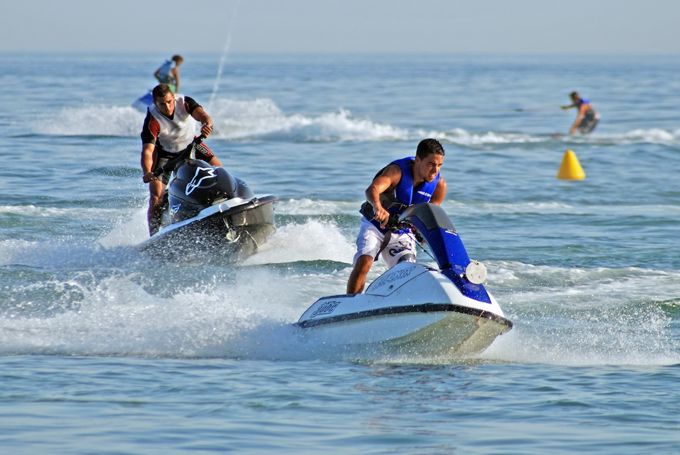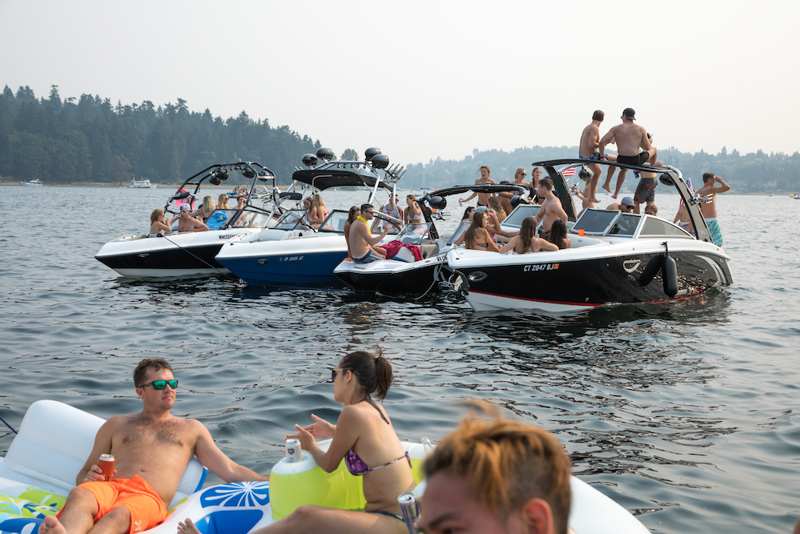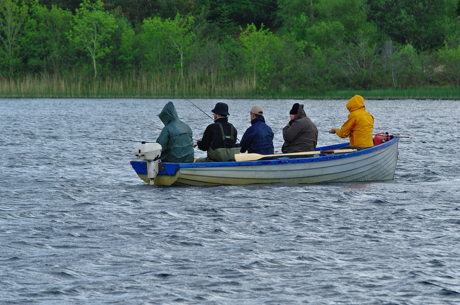
Can I Stop Jet Skiers, Boaters, and Fishers Who Park in the Water Next to My Waterfront Property?
Do I Control The Water On My Property?
You purchased a beautiful waterfront property, and you paid (a lot!) extra to get that beautiful view and the water-related recreational activities. Can you stop noisy jet skiers, or boaters who like to park just offshore your waterfront property to fish, socialize or party?
The answer is “it depends.”
You have a better chance to exercise some control if your waterfront property is on a lake or a pond, as opposed to waterfront located on a bay, river, creek or the shores of the sea. Still, if your waterfront sits on a bay, river, creek or the seashore, you still may have some ability to limit objectionable activities on the water if you own the bottomland beneath those water bodies.

VDB Photos/Shutterstock.com
Why the Type of Waterfront Matters
Let’s break this down. One of our future blog posts will describe all the ways it is possible for you to own the bottomland under the water next to your property. If your waterfront property is on a lake or a pond, chances are that the bottomland under the water is privately owned, but waterfront property on a bay, river, creek or the seashore probably has bottomland under the water that is owned by the Commonwealth of Virginia.
Bottomland Ownership Plays a Key Role
Ownership of the bottomland matters because the cases in Virginia only allow the waterfront property owner to have some ability to somewhat control what happens on the water if they also own the bottomland under the water. For example, the Virginia Supreme Court in 1996 ruled that the person who owned the bottomland under the water on a navigable portion of the Jackson River could prevent people from fishing in the water body covering the bottomland that he owned. Seven Justices of the Virginia Supreme Court participated in the case and some of the Justices disagreed with the ruling made by the majority, so this was a ruling from a divided Court.
Also, this case probably represents the outer limits as to how far the Virginia Supreme Court is willing to go in allowing a waterfront property owner to restrict fishing from a boat on a navigable water body. The Virginia courts have no problem ruling that a waterfront property owner who owns the bottomland under the water can stop activities that touch that privately owned bottomland.
How Far Does Bottomland Ownership Extend?
So, for example, the waterfront property owner in this situation could stop a person who wants to fish while wading on the privately owned bottomland and could stop a boat from dropping anchor on the privately owned bottomland. The waterfront property owner in this situation would even have the legal right to forbid fishing with a net (if the net touches the privately owned bottomland).
The remarkable thing about this 1996 riparian rights case, however, is that the Court ruled that the waterfront property owner could forbid fishing from a boat even though no part of the boat, the fisherman, or the tackle touched the privately owned bottom.

Alessandro Zappalarto/Shutterstock.com
On navigable bodies of water, the Virginia cases uniformly hold that the waterfront property owner who also owns the bottomland under the water cannot stop boaters from passing through those waters. In the landmark Virginia Supreme Court case of Ewell v. Lambert from 1941 the court ruled that a waterbody is “navigable” if it is used “or is susceptible of being used . . . as a highway for commerce on which trade and travel were or might be conducted in the customary modes of trade and travel on water.”
Understanding Riparian Law
One last thing. If your waterfront property is on a lake or a pond, you have the best chance to exercise control over what happens on the water. In one Virginia Supreme Court case from 1962 the court went so far as to rule that the waterfront owner on an inland lake had the right to erect a fence across his part of the lake to exclude boaters and those who wished to fish, because lakefront property rights differ from other waterbody property rights.
For more information on bottomland ownership and your rights as a waterfront property owner, feel free to contact us here.
